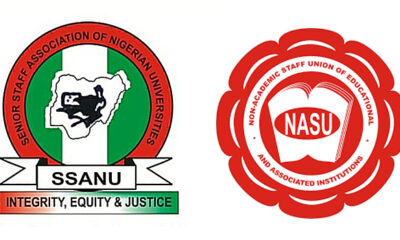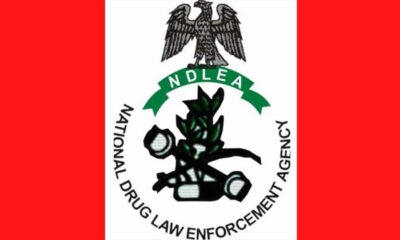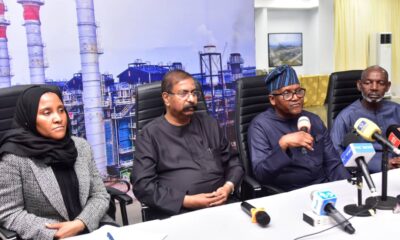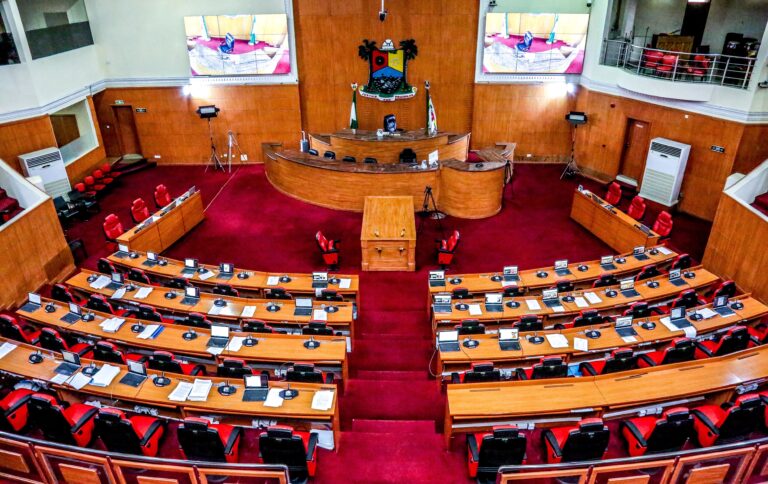There are indications that the Peoples Democratic Party (PDP) would bar some of its presidential aspirants, who have graft cases from participating in the primary scheduled for October 5-6.
According to The Sun, some top shots in the PDP are strongly canvassing that anyone with graft case or any criminal charge should not be allowed to fly the PDP presidential flag in 2019.
A former member of the PDP National Working Committee (NWC), who declined to be named because he was not authorised to speak on the matter, reiterated the party is desirous of fielding a candidate without blemish in 2019.
“There are some of these aspirants who have cases with the Economic and Financial Crimes Commission, and other anti-corruption agencies.
“Some cases bordering on graft, embezzlement, money laundering and all of that. We want a presidential candidate from the PDP that will be as white as snow so that the issue of blackmail and all of that will not arise.
“So, we should be looking at someone who has credibility, integrity and the rest of that because the APC government is out to run down anybody that has a skeleton in its cupboards. We must try to avoid those pitfalls.”
Similarly, another leader of the PDP in Adamawa State, who also declined to be named, told Daily Sun that it is in the interest of the opposition party not to field any candidate with any encumbrances in 2019.
“The PDP should stop anybody who has a charge against him. Either corruption or any criminal matter. PDP should not field him for two reasons. One, because of image. The image the public has of the PDP today is that it is a corrupt party. If we field people who are standing trial for corruption, then, we are going ahead to admit or indicate to the Nigerian people that our party that we are not ready to change.
“Yes, the Constitution says until you are found guilty, you are innocent. We understand. But, the fact that you have a corruption case, and you have been charged in a court of law, and you pleaded not guilty; there is a possibility that you can be convicted.
“There is a moral burden on the party to prove that it is not what people think it is. We, therefore, said we must make sure that it does not field anybody with corruption charge. PDP must secure its participation in the election. If you field somebody standing trial in court, you finish nomination in October, finish substitution in November; you still have November, December, January and February before the presidential election.
“Supposing he is convicted within these three months, that means the PDP will not contest the election. There is no point going into an election if you cannot guarantee your participation. And, the fact that you are fielding a person with exuberance, there is a possibility of him being convicted. So, we must, under no circumstances, field anybody that is standing criminal charges.”
When contacted for his reaction, the PDP National Publicity Secretary, Kola Ologbondiyan, said the party will not choose its candidate on the basis of whether or not they have graft cases.
Ologbondiyan also said no member can canvass for the opposition party to drop aspirants with corruption cases, and that the party would be guided by the provisions of the 1999 Constitution (as amended), as well as its rules in screening presidential aspirants.
He said the Supreme Court had ruled in the past that anyone who has not been convicted in the court cannot be barred from participating in an election.
“Please, don’t bring that to us, it is not in our party. Nobody in our party told you that. Once you are a member of our party and you have satisfied the provisions of the constitution, and you have complied with the provisions of our own constitution, as well as our guidelines, you are free to contest (the presidential primary),” Ologbondiyan noted.
This was against the backdrop of commencement of screening of presidential aspirants.
The PDP Presidential Screening Committee has screened some aspirants who obtained the party’s nomination and expression of interest forms for the presidential primary.
Among those who appeared before the screening panel, headed by former Vice President, Namadi Sambo, yesterday, were former Vice President, Abubakar Atiku, Sokoto State Governor, Aminu Tambuwal, Senate President, Bukola Saraki, former Senate President, David Mark and former national chairman of the party, Senator Ahmed Makarfi.
Others were former Sokoto governor, Attahiru Bafarawa; former minister of Special Duties, Taminu Turaki; former governor of Plateau State, Jonah Jang and founder of Baze University, Abuja, senator Datti Baba-Ahmed.
Supporters of former Kano governor, senator Rabiu Kwankwaso and those of former Jigawa governor, Sule Lamido were seen around the Legacy House, Abuja, venue of the exercise.
Gombe State Governor, Ibrahim Dankwambo, and Stanley Osifo, who also obtained the PDP presidential nomination forms were not at the screening venue, yesterday.
Most of the aspirants described the screening process as transparent and noted that they would work together, irrespective of who clinches the PDP presidential ticket.
Jang insisted “the process was beautiful. Absolutely I stand a chance to win the ticket. I am optimistic because I believe in God and I believe that God is going to give it to me. I am also impressed that there is no bitterness in the ongoing campaign by the presidential aspirants.”
On his part, Turaki reiterated that “we must work together. There must be a synergy to ensure that PDP saves Nigeria from imminent collapse. Only one person can be president at a given time and whosoever gets it, by the special grace of God, we have agreed to support that person.

 BIG STORY4 days ago
BIG STORY4 days ago
 BIG STORY3 days ago
BIG STORY3 days ago
 BIG STORY3 days ago
BIG STORY3 days ago
 BIG STORY2 days ago
BIG STORY2 days ago
 BIG STORY2 days ago
BIG STORY2 days ago
 BIG STORY4 days ago
BIG STORY4 days ago
 BIG STORY3 days ago
BIG STORY3 days ago
 BIG STORY3 days ago
BIG STORY3 days ago























